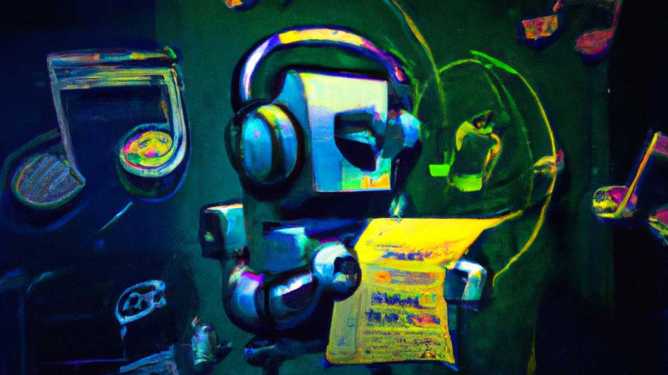
Artists Are Using AI Music Generators to Create Hate-Filled Songs
The Dark Side of Generative AI Music: How Malicious Actors are Using AI Tools to Spread Hate and Propaganda
A Growing Concern
In recent months, there has been a significant increase in chatter within hate speech-related communities about using generative AI music tools to create offensive songs targeting minority groups. According to ActiveFence, a service for managing trust and safety operations on online platforms, this trend is particularly concerning as it highlights the potential for these AI-generated songs to be used as a powerful tool for spreading hate and propaganda.
The Rise of Hate Songs
ActiveFence researchers have found that malicious actors are using AI music creation tools to produce songs that incite hatred towards ethnic, gender, racial, and religious groups. These songs often celebrate acts of martyrdom, self-harm, and terrorism. While hateful and harmful songs are not a new phenomenon, the fear is that with the advent of easy-to-use, free music-generating tools, they will be created at scale by people who previously did not have the means or know-how.
The Ease of Abuse
Generative AI music tools like Udio and Suno allow users to add custom lyrics to generated songs. While these platforms have safeguards in place to filter out common slurs and pejoratives, malicious actors have found ways to bypass these filters. Users have shared phonetic spellings of minorities and offensive terms that they use to evade content moderation.
Workarounds and Evasions
In one example cited by ActiveFence, users in white supremacist forums shared phonetic spellings of minorities and offensive terms, such as ‘jooz’ instead of ‘Jews.’ These workarounds allow malicious actors to create songs that would otherwise be caught by content moderation systems.
The Impact of Generative AI
Generative AI services enable users who lack resources or creative skills to build engaging content and spread ideas that can compete for attention in the global market. However, this also means that threat actors are working to bypass moderation and avoid being detected. According to ActiveFence, these malicious actors have been successful in their efforts.
The United Nations’ Concerns
A UN advisory body has expressed concerns that racist, antisemitic, Islamophobic, and xenophobic content could be supercharged by generative AI. This highlights the need for greater regulation and oversight of these AI tools to prevent their misuse.
What Can Be Done?
To combat this trend, it is essential to develop more effective moderation systems that can detect and prevent the use of AI-generated hate songs. Additionally, policymakers must work to establish clear guidelines and regulations around the use of generative AI tools to prevent their misuse.
The Future of Generative AI Music
As generative AI music tools continue to evolve, it is crucial to consider the potential risks and consequences of their misuse. By working together to address these concerns, we can ensure that these powerful tools are used for good and not for spreading hate and propaganda.
Conclusion
The rise of generative AI music tools has opened up new possibilities for artists and creators. However, this trend also highlights the need for greater vigilance and regulation to prevent their misuse by malicious actors. By understanding the potential risks and consequences of these AI tools, we can work towards a future where they are used for good and not for spreading hate and propaganda.
Recommendations
- Develop more effective moderation systems that can detect and prevent the use of AI-generated hate songs.
- Establish clear guidelines and regulations around the use of generative AI tools to prevent their misuse.
- Encourage policymakers and regulatory bodies to work together to address these concerns.
- Support research into the development of AI tools that can detect and mitigate the spread of hate speech.
The Future of AI
As we move forward with the development of generative AI music tools, it is essential to consider the potential risks and consequences of their misuse. By working together to address these concerns, we can ensure that these powerful tools are used for good and not for spreading hate and propaganda.


